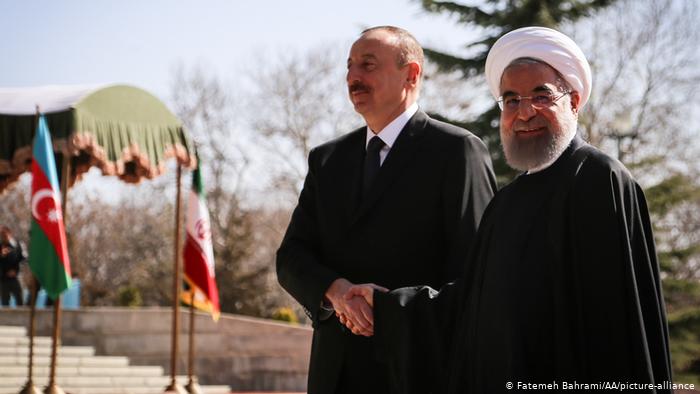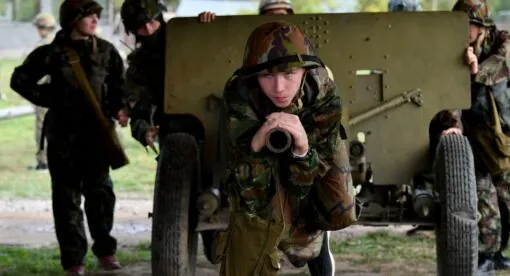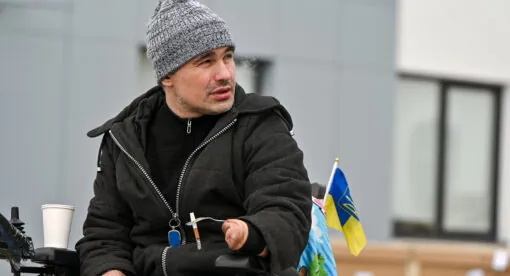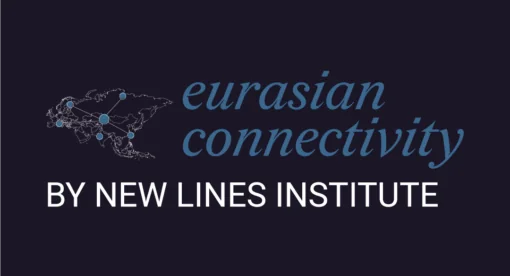Tehran’s weak hand in the Nagorno-Karabakh conflict, occurring just north of it across the Aras River, sharply contrasts with the sphere of influence it has crafted in the northern rim of the Middle East. On one hand, a full tilt to its ally Armenia would anger Iran’s sizable Azeri community and put it in more conflict with Turkey; on the other, a full tilt to Azerbaijan (assuming and to the extent that it is possible), a fellow Shiite-majority state with which Iran has had contentious ties, would anger Russia, whose support Iran needs on other matters, including its nuclear spat with the United States. Given these constraints, Iran will probably continue to lack the ability to seriously influence the geopolitics of the South Caucasus. Instead it will largely be relying on Russia to uphold the recently announced cease-fire, prevent the spillover of cross-border Azeri and pan-Turkic sentiments into its Azeri population, and navigate through commercial threats and opportunities borne out of the pause in active hostilities.
Iran’s interests in the region are under pressure from Turkey, a relative newcomer that has recently made significant geopolitical and commercial headway in the South Caucasus. Ankara has negotiated a corridor that would directly link it to Azerbaijan via the enclave of Nakhchivan and through Armenian territory. This route gives Turkey more opportunities to access Central Asian markets. The 2020 war allowed the Turks the opportunity to force Russia to recognize it as a player in the region.
From the U.S. perspective, Turkey has positioned itself as useful to American interests by demonstrating the willingness to confront Russia from the Mediterranean to the Caspian basins. But these short-term gains must be balanced against longer-term risks of Ankara acting unilaterally in ways that could undermine U.S. interests, especially in the trans-Caspian region – for example when it defied Washington by purchasing the Russian S-400 air defense system despite that decision leading to its removal from the F-35 joint strike fighter program and the imposition of sanctions.
The Turkish move to aid Azerbaijan’s territorial gains against Armenia helps the American policy toward Iran. Tehran finding itself weakened in the South Caucasus strengthens Washington’s hand in its dealings with the clerical regime on the nuclear issue as well as its outsized influence in the Arab world. The timing could not be better as the incoming Biden administration seeks to return the United States to the negotiating table with Iran. It is therefore important to fully appreciate Iran’s current strategic position in the Caucasus.
Iran and the First Nagorno-Karabakh War

Persia was once the dominant power in the South Caucasus, but by 1828 the Qajar dynasty had ceded most of the territory to Russia after years of Russo-Persian wars. Turkic Azeris living north of the Aras river became Russian subjects, and those south of the river remained under Persian rule. In the 1980s, tensions began to rise between the then-Soviet states of Armenia and Azerbaijan over the disputed territory of Nagorno-Karabakh, or Artsakh, and after the Soviet Union collapsed in 1991, the two newly independent states went to war. Armenian forces took full control of Nagorno-Karabakh in 1994.

Iran openly supported Armenia during the 1990s, including keeping its borders open to the country during the blockade by neighboring states in 1993, but recent reports and memoirs of Iranian officials have challenged the conventional wisdom that Tehran has only supported Yerevan. According to Iranian officials, commanders, and veterans, Tehran’s covert military support to Azerbaijan continued long after the conflict in the early 1990s. They have revealed this information in the context of responding to accusations that Iran abandoned Azerbaijan in that conflict. Iran dispatched equipment and Islamic Revolutionary Guard Corps (IRGC) military advisers and commanders to equip, train and advise Azerbaijani troops. They often fought directly in combat. In 1993, then-President Akbar Hashemi Rafsanjani signed a $30 million agreement with Azerbaijan and authorized the funneling of Afghan fighters to the Caucasus.

Iranian assistance began after Azerbaijan’s 1991 independence, was severed in 1992 after President Abulfaz Elchibey came to power, and briefly picked back up in 1993 when President Heydar Aliev took over following a coup d’etat. Aliev again cut Iranian support due to concerns about the Guard Corps promoting Islamism in Azerbaijan.
Iran kept this relationship covert for two reasons. First, Tehran had just gotten out of the devastating Iran-Iraq war and wanted to avoid possible international blowback, especially a possible military confrontation with Russia. Second, the Islamic Republic faced an Azerbaijan that laid claim to Iranian Azerbaijan, or Southern Azerbaijan as irredentists like to call it, especially under Elchibey. Iranian officials, a significant number of whom are (like Supreme Leader Ali Khamenei) ethnic Azeris, did not seriously view the irredentism fused into Azerbaijani identity by Soviet Azerbaijan. These officials, however, insisted on providing covert military support to Azerbaijan. They wanted to improve bilateral ties and to support fellow Shiite Muslims and their Azeri brethren.
Fraught Iranian-Azerbaijani Relations
Since the end of the first Nagorno-Karabakh war, ties between Iran and Azerbaijan have been tumultuous. Economic and energy relations have continued, with Iran being the only natural gas supplier to the Azerbaijani enclave of Nakhchivan, but political relations remain fraught. Baku worries about Tehran using sectarian political and religious ideology against them, while Tehran is wary of Baku using continued irredentist sentiment to create unrest in Iran’s ethnic Azeri majority northwestern provinces of West Azerbaijan, East Azerbaijan and Ardabil.
Also to Iran’s consternation, Azerbaijan has grown closer to Israel, including signing a $1.6 billion arms deal in 2012. Iran has accused Azerbaijan of helping Israel assassinate an Iranian scientist in 2012 and allowing Israel to launch a drone from its territory in 2014. Baku has denied reports that it gave Israeli forces permission to launch attacks on Iran from Azerbaijan, but the assertions still increased mutual mistrust. Baku also has shown some deference to the United States, supporting its controversial decision to move the U.S. Embassy from Tel Aviv to Jerusalem in 2017 and reducing its oil and gas trade with Iran to comply with U.S. sanctions.
Meanwhile, Iran has broadcasted Shiite Islamist propaganda into Azerbaijan and has supported Azerbaijani Islamists who have clashed with authorities. In 1999, Baku accused Iran of spying for Armenia and training militant Islamists to undermine the government. Iran enjoys broader support among the religiously conservative areas in southern Azerbaijan by the border area, and has paid stipends for Azerbaijanis, estimated in the thousands, to receive seminary education in Iran.
The IRGC has recruited Azerbaijanis to fight in Syria in a force dubbed the Hosseyniyun after the grandson of the Prophet whom Shiites revere as the third imam, Hussein bin Ali. Five Hosseyniyoun members have been arrested and sentenced to lengthy sentences of 12 to 14 years by Azerbaijan, “the regime tied to the Zionists,” according to a propaganda video released last year that shows photos and videos of the five militants. Iranian media and officials were virtually mute on the Hosseyniyun’s existence, possibly because of a decision made at the top to not inflame tensions that could affect Iranian Azeris.
Tehran and Iranian Azeris
Iran has had a complex relationship with its 20 million Azeris, which make up 20% of the total Iranian population; there are actually more Azeris in Iran than Azerbaijanis in Azerbaijan. Though Azeris have been at the forefront of promoting Iranian nationalism, including against Azerbaijani irredentist claims, Iranian discrimination against Azeris has persisted, including a prohibition against the teaching of Azeri language at schools and the appearance of racist and stereotyped portrayals of Azeris on state television. Furthermore, the short-lived, Soviet-backed Azerbaijan’s People’s Government after World War II has shaped Iranian fears of losing territorial integrity, and warps perceptions of Azeri demands for more rights.
In the past two decades, there has been an increase in calls for greater autonomy for ethnic Azeri regions of Iran and displays of pan-Turkic sentiments. While some Azeris demonstrated in 1992 to protest against Armenia, Iran today is far more worried about pan-Turkic sentiments and for perceived Iranian support for Armenia creating more anger among Iranian Azeris, who rebelled during the nationwide protests in Iran in 2017-18 and 2019. Reports of Iran facilitating Russian military hardware and trucks to Armenia spread on Iranian social media, though Tehran denied them.
More recently, after Armenian-Azerbaijani tensions over Nagorno-Karabakh once again escalated into open conflict in July, Iranian Azeris took to the streets of northwestern Iran and Tehran in support of Baku in late September and early October. Security forces immediately cracked down on protests and subsequently summoned and arrested activists, with at least 50 reportedly detained thus far. State media framed the protests as initially peaceful but pushed to violence by “separatists.”
Tehran’s Geopolitical Constraints in the South Caucasus
Since the 1990s, Iran has sought to assert some measure of its historic role in dominating, or at the very least shaping, the geopolitics of the South Caucasus, but it has found itself on the sidelines. It has generally acted with more caution there because instability could spill over and destabilize Iran, but it has committed missteps along the way. For instance, Tehran failed to build upon its covert military support after 1993 because it promoted Islamism in training camps.
Despite an attempt to broker a cease-fire in the 1990’s war, the Minsk Group, the internationally brokered peace process instituted in 1992 and led by the American-French-Russian triumvirate to solve the Nagorno-Karabakh conflict, refused to give Iran a seat at the table over concerns about the Islamic Republic’s foreign policy and Islamist radicalism, particularly in the 1980s. Frozen out of the peace process, Iran has pursued topics like energy and trade in the region.
Meanwhile, especially as U.S. sanctions have bitten Iran in the 2000s and 2010s, it has sought to use the South Caucasus, especially Georgia, to circumvent them. The Islamic Republic’s promotion of Islamism in Azerbaijan, including recruitment of fighters, has proven to be a hindrance to bilateral ties. That is perhaps in part a reaction to Baku’s close ties with Israel and refusal to fully shelve irredentist claims beaming out of Azerbaijan into Iran.
Early on in the 2020 conflict, Iran’s official position was to support a cease-fire between Azerbaijan and Armenia, with President Hassan Rouhani warning that a war could destabilize the entire region. Later, Iranian officials, including Azeri members of parliament and clerics appointed by Khamenei, came out in support of Azerbaijan’s U.N.-recognized claim to the disputed territory, with a Rouhani administration spokesman explicitly calling on Yerevan to cede Karabakh to Baku.
These should again be viewed within the pattern of Iranian response, often led forcefully by Azeris, to Azerbaijani irredentist claims. Ameli released a statement Sept. 29 declaring support for Baku’s actions to “retake usurped lands” and claiming Iran “has stood alongside Azerbaijan more than any country in its trying times, especially in the early occupation of Karabakh,” adding that “psychological accusations, unfair accusations, and deceitful images will not separate the two nations from each other.” Supreme Leader Ayatollah Ali Khamenei also declared his support of Azerbaijan in Karabakh, though he waited almost a month into the conflict, when momentum was clearly on Azerbaijan’s side, to make that declaration. Khamenei’s declaration earned him a statement of appreciation from Azerbaijan.

Turkey’s expansion into the South Caucasus has raised some serious concerns in Iran. Ankara has competed with Tehran in the South Caucasus to expand its reach there for some time, seeing a cultural zone of influence and markets there. Turkish arms and drones proved very effective in Azerbaijan’s win, allowing Ankara a greater foothold and ties with Azerbaijan. Iran has expressed alarm at the Turkish-facilitated deployment of Syrian paramilitaries to fight for Azerbaijan, leading it to increase its forces along its northern border. After all, these Syrian fighters have previously fought the IRGC in Syria.
Turkey has done its part to fan the flames. During a victory parade in December, Turkish President Recep Tayyip Erdogan read a poem that lamented Azeris’ separation by the Aras River, prompting condemnation from Iranian politicians and newspapers that called it an endorsement of Azeri secessionism.
Iran and Turkey do have common interests, such as cooperation on energy and fighting against Kurdish groups. Bilateral ties survived years of fighting proxy war in Syria, which contributed to a refugee crisis in Turkey and Europe, and Turkey’s bombing of the Guard Corps in northern Syria earlier this year. Regardless, the South Caucasus will probably prove to be a flashpoint in Iranian-Turkish competition.
On trade, Iran is concerned about Turkey undercutting Iranian natural gas supplies to the enclave of Nakhchivan, as well as a southern corridor that could significantly reduce transit through Iran. The corridor would connect Azerbaijan proper to Nakhchivan through Armenian territory guaranteed by Russian troops negotiated in the cease-fire. Turkey has also announced it would build a railroad to Nakhchivan, a move that could undermine the Baku-Tbilisi-Kars railroad. Turkey could access Central Asian markets via Baku and the Caspian Sea.
Discovery of energy in the Black Sea and Mediterrenean has made the South Caucasus even more important for Turkey. Iran’s concerns about losing its market has led its ambassador to meet with officials from the autonomous enclave, with both sides agreeing to expand economic cooperation. At the same time, the return of Azerbaijanis to areas by the Iranian border in Karabakh has opened commercial opportunities for Iran. Iranian officials have vowed that they would take a leading role in reconstruction, including energy projects.

In the November 2020 cease-fire agreement, Russia froze Iran out of the conflict and reached an understanding with Turkey. Initially taking the South Caucasus for granted following the Soviet collapse, Russia started paying attention to the region as strategically important in the mid-1990s. It has held Armenia as its security client and has attempted to foster good economic ties with Azerbaijan, all while taking a heavy hand in Georgia, invading and occupying some of its territory in 2008. Since 2018, Russia has been displeased with the pro-Western stance of Armenian president Nikol Pashinian. After the outbreak of the latest conflict in Karabakh, it did not actively oppose an expanded Turkish role in the area, seeing the cost of intervention as being too high. As Azerbaijan gained the upper hand, Russia sensed an opportunity to weaken Pashinian.
Russia humiliated Iran by saying it would consider an Iranian cease-fire proposal in early November, only to freeze out Iran and instead give a seat to Turkey, with which it competes in Syria and Libya but also cooperates on certain areas. The Kremlin knows that Iran could not foil any plans in Karabakh and that Iran needs Russia, for instance in its spat with the United States at the U.N. Security Council. The Russian ambassador to Iran has mused that Moscow would sell S-400 air defense systems to Iran regardless of U.S. sanctions (the long delay of S-300 delivery casts doubt on this deal). Furthermore, Russian troops guarantee the cease-fire for five years, and, for the first time since the Soviet collapse, are in the vicinity of the Iranian border, which probably does not thrill many in Tehran.
Forecast

In the near future, Iran will probably face an expanded Turkish geopolitical and commercial influence in the south Caucasus. Tehran will remain concerned about Turkish and Azerbaijani support for Azeri separatism but use its specter to make the case on the home front about threats to Iran’s territorial integrity, as was the case last week with the Foreign Ministry’s response to Erdogan’s remarks, warning that “Iran does not allow anyone to meddle in its territorial integrity.” Tehran would hope to compete with and retain its role as a primary transit route for energy resources and will look to expand economic cooperation with Azerbaijan to help it reconstruct southern Karabakh.
Israeli ties with Azerbaijan will prove to be a major source of concern, even more so in light of the assassination of top nuclear official and military officer Mohsen Fakhrizadeh. Iran may hope to convince Russia that Turkish energy projects in the South Caucuses are a threat to Russian energy interests, as a conference in the Strategic Research Center of the Expediency Discernment Council has proposed. That plan faces significant obstacles because Russia and Turkey cooperated in the region. The South Caucasus is poised to be a major national security concern for the next Islamic Republic administration due to take office after the presidential elections in June of next year. Its weak position on its northwestern frontier will undermine its bargaining power as it prepares to renegotiate the nuclear issue and its controversial influence in the Middle East with the incoming Biden Administration.
Amir Toumaj is an independent researcher on the geopolitics of Iran, with a particular focus on the Islamic Revolutionary Guards Corps (IRGC), proxy warfare, and the country’s domestic politics. Toumaj has previously worked for the Foundation for the Defense of Democracies and the American Enterprise Institute as well as in the private sector. His work has been cited and published in global outlets such as The New York Times, The Wall Street Journal, The Guardian, and The Daily Beast. He Tweets at @AmirToumaj.
The views expressed in this article are those of the author and not an official policy or position of the Newlines Institute.







